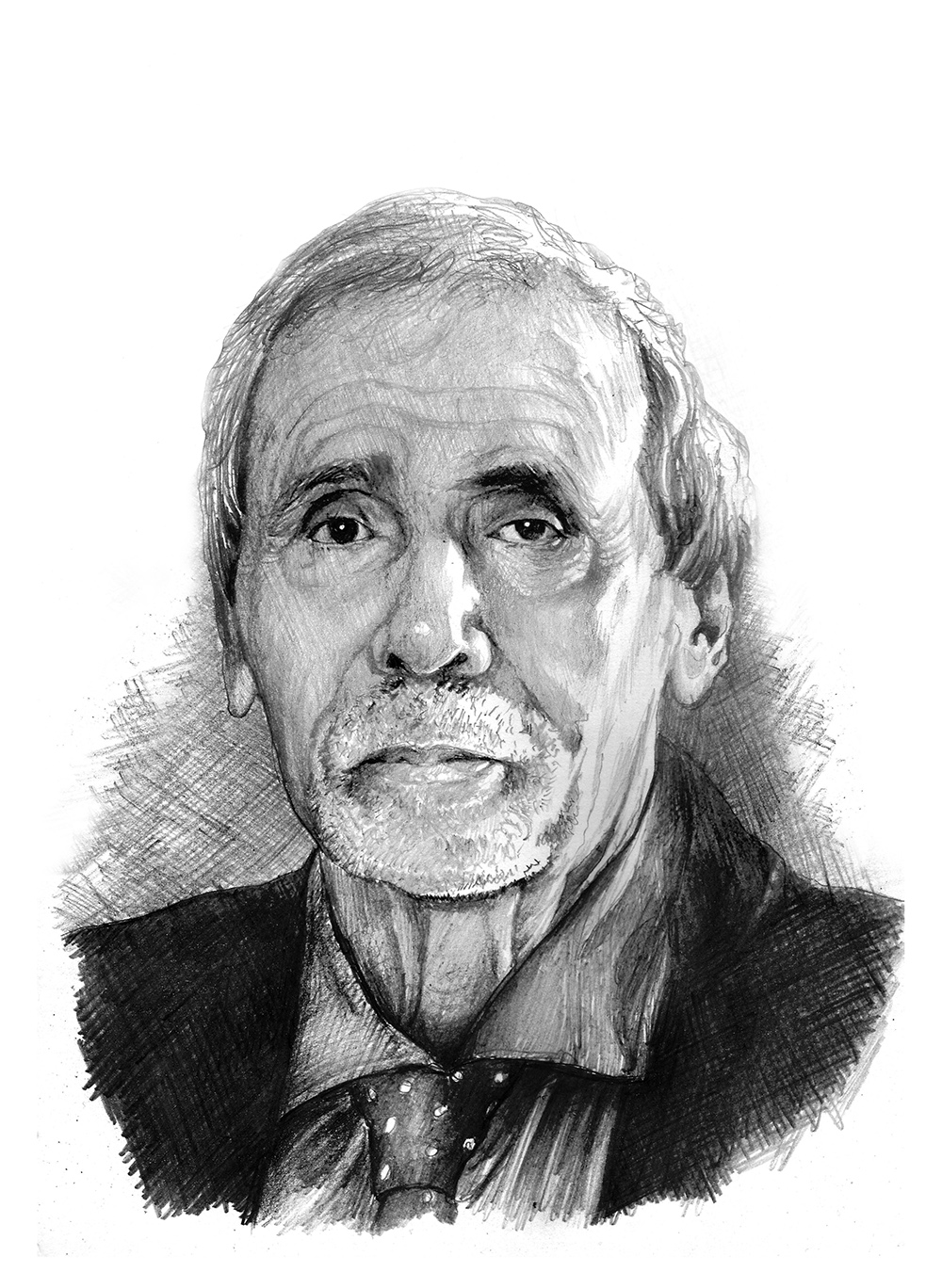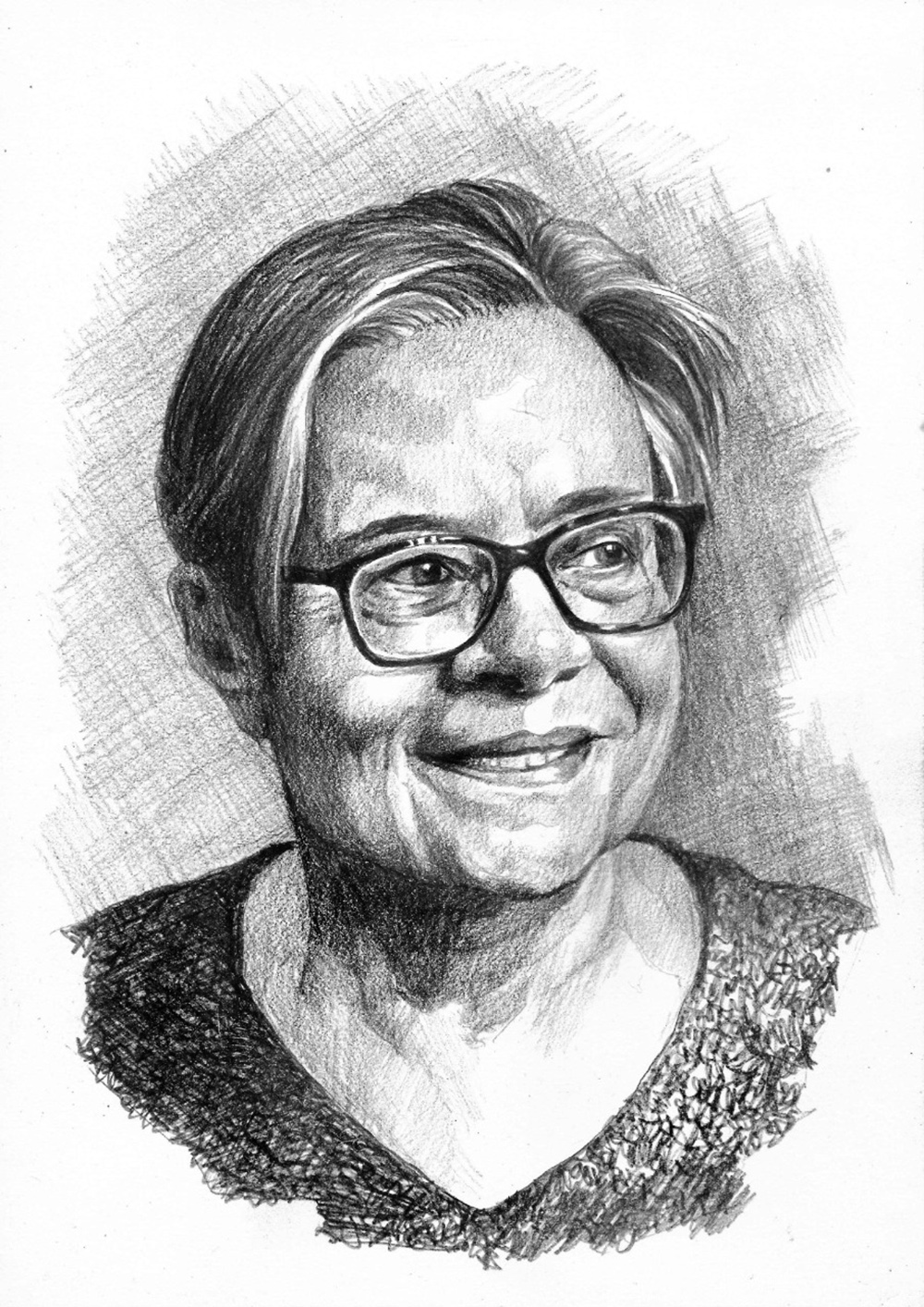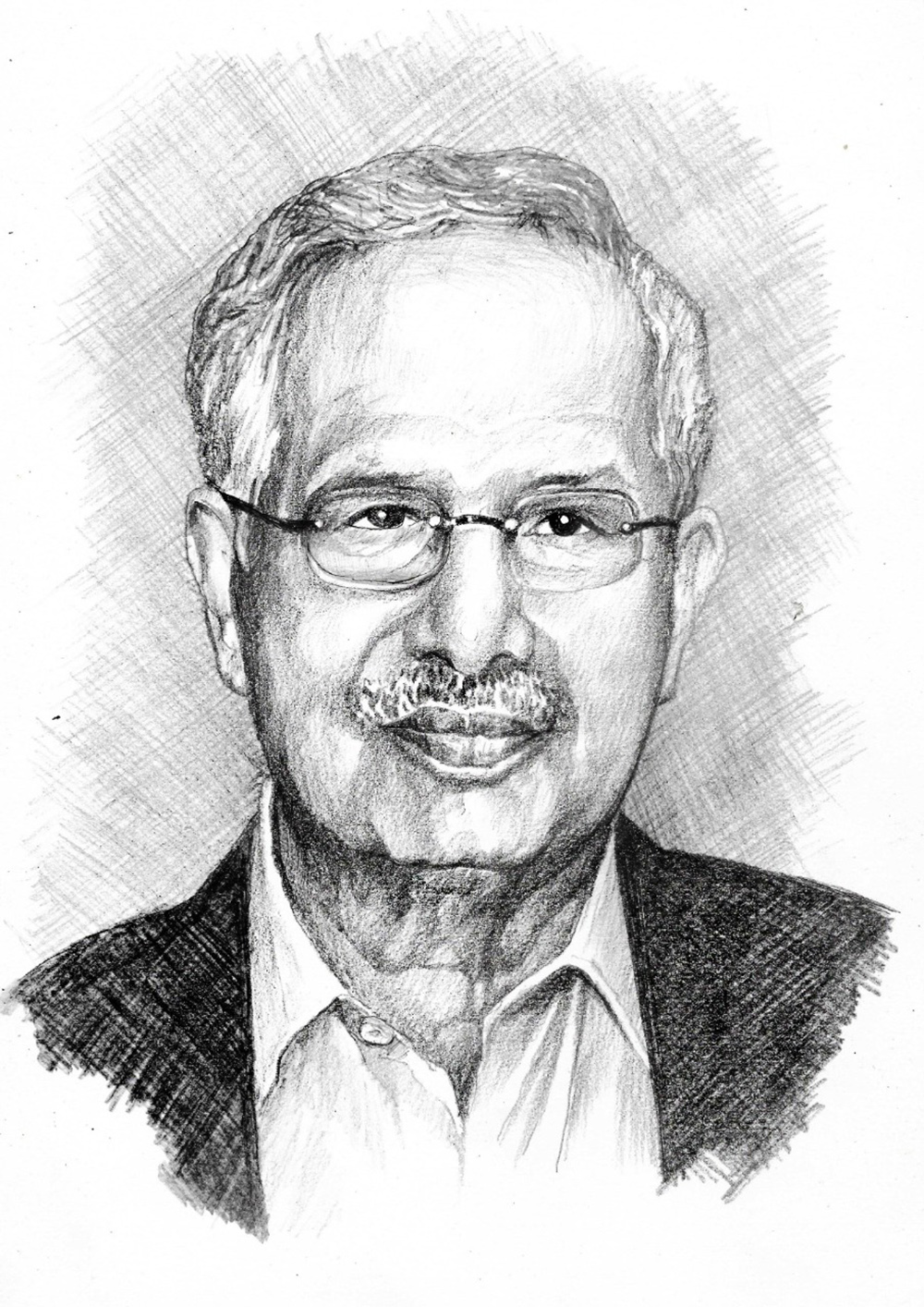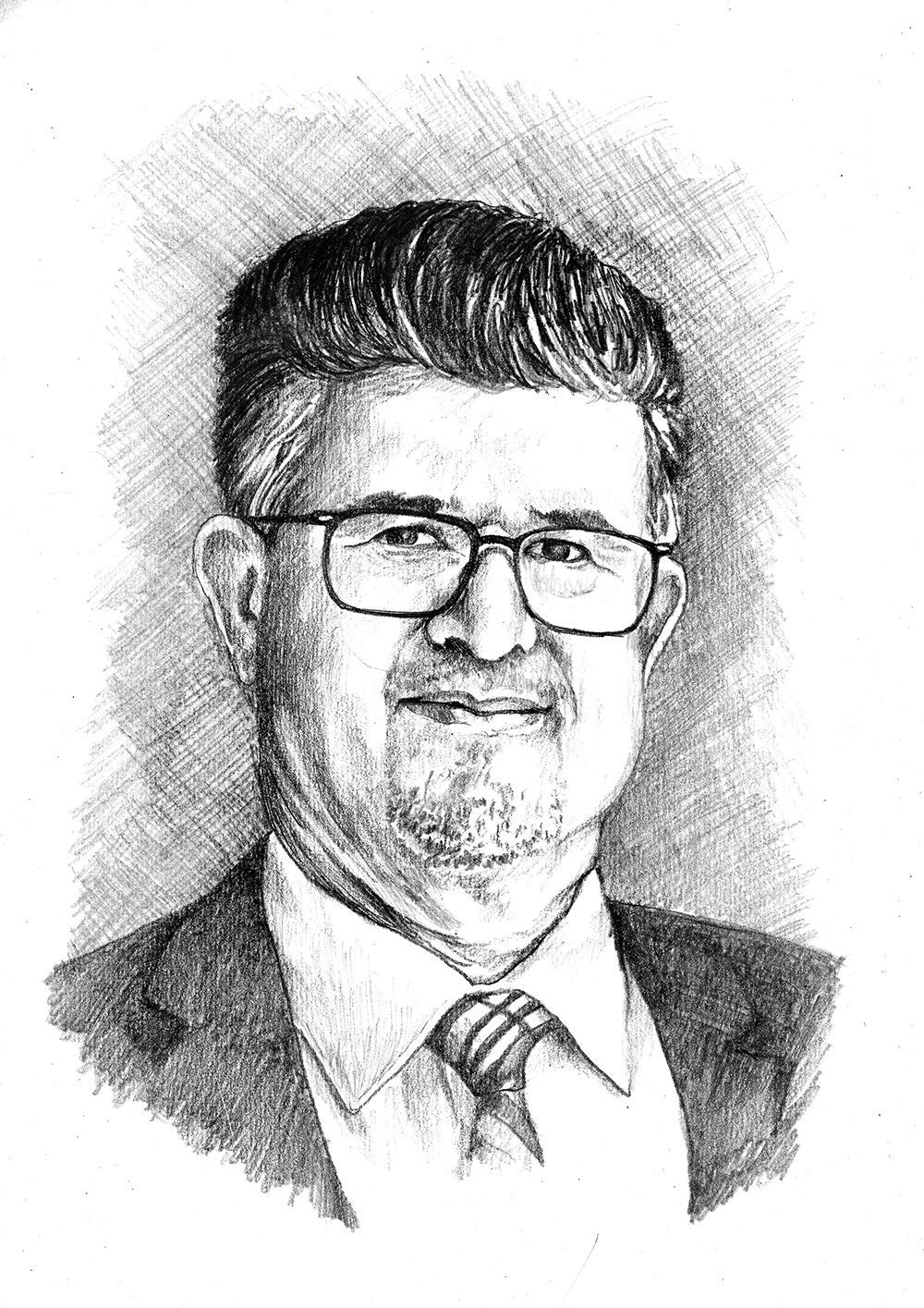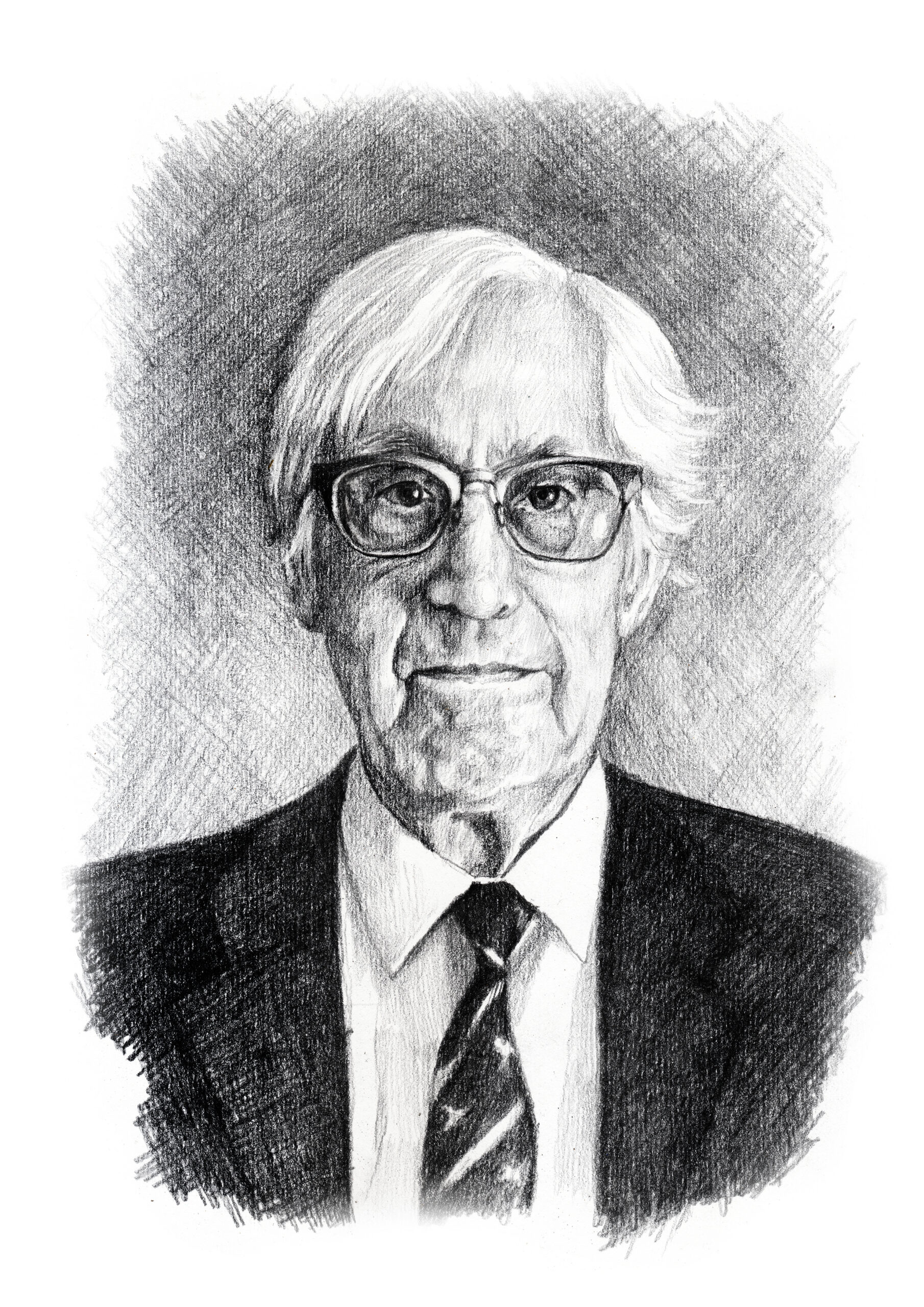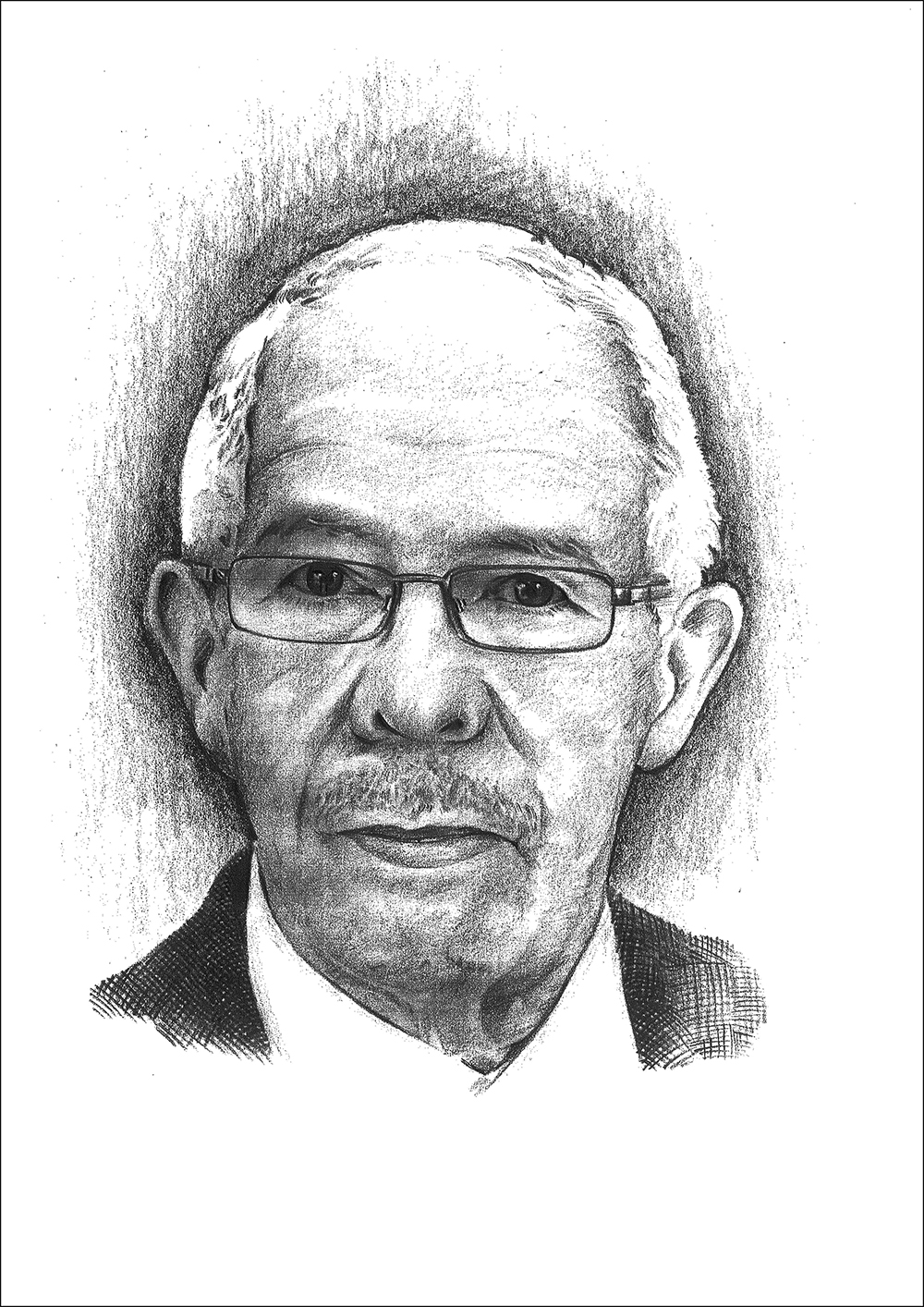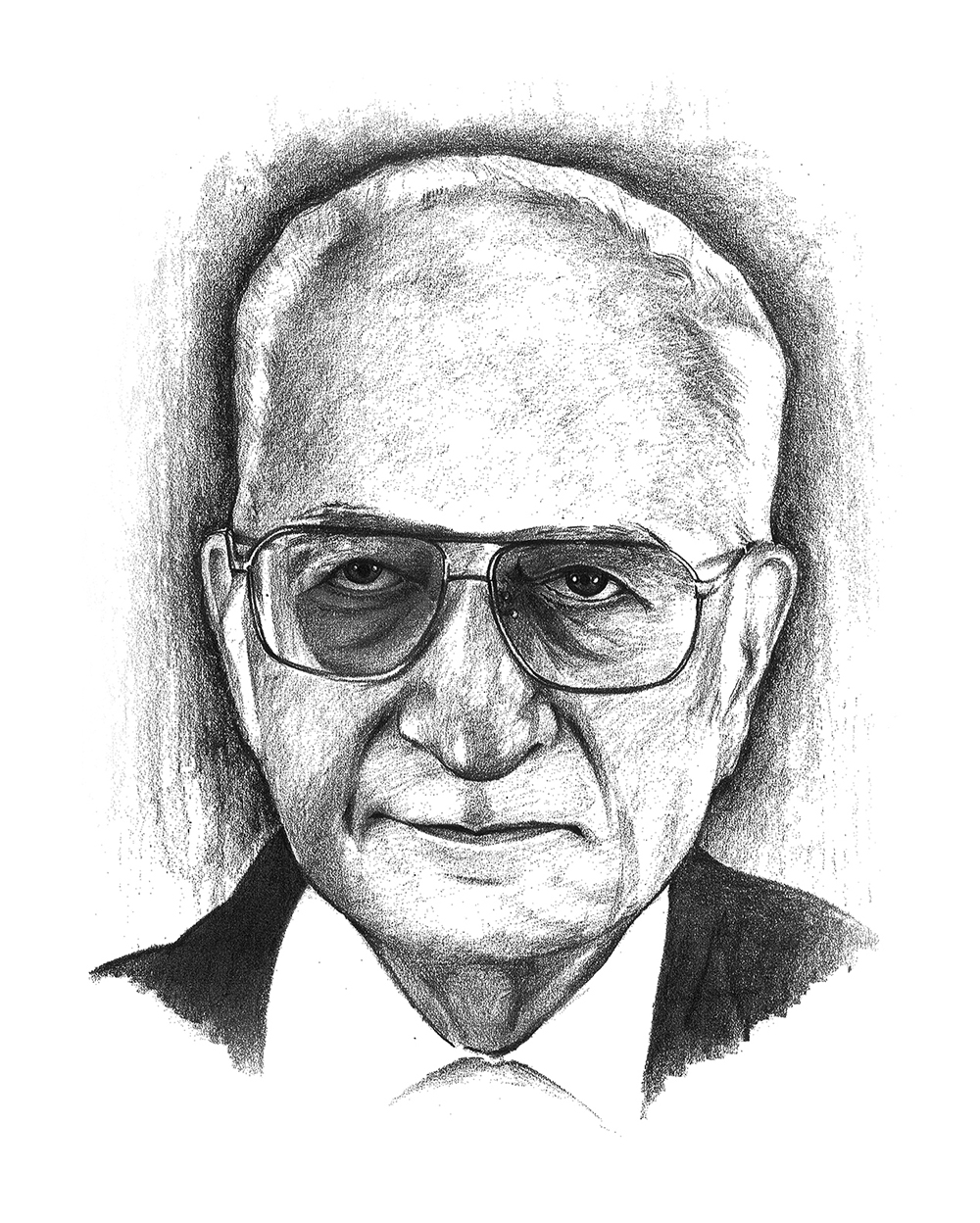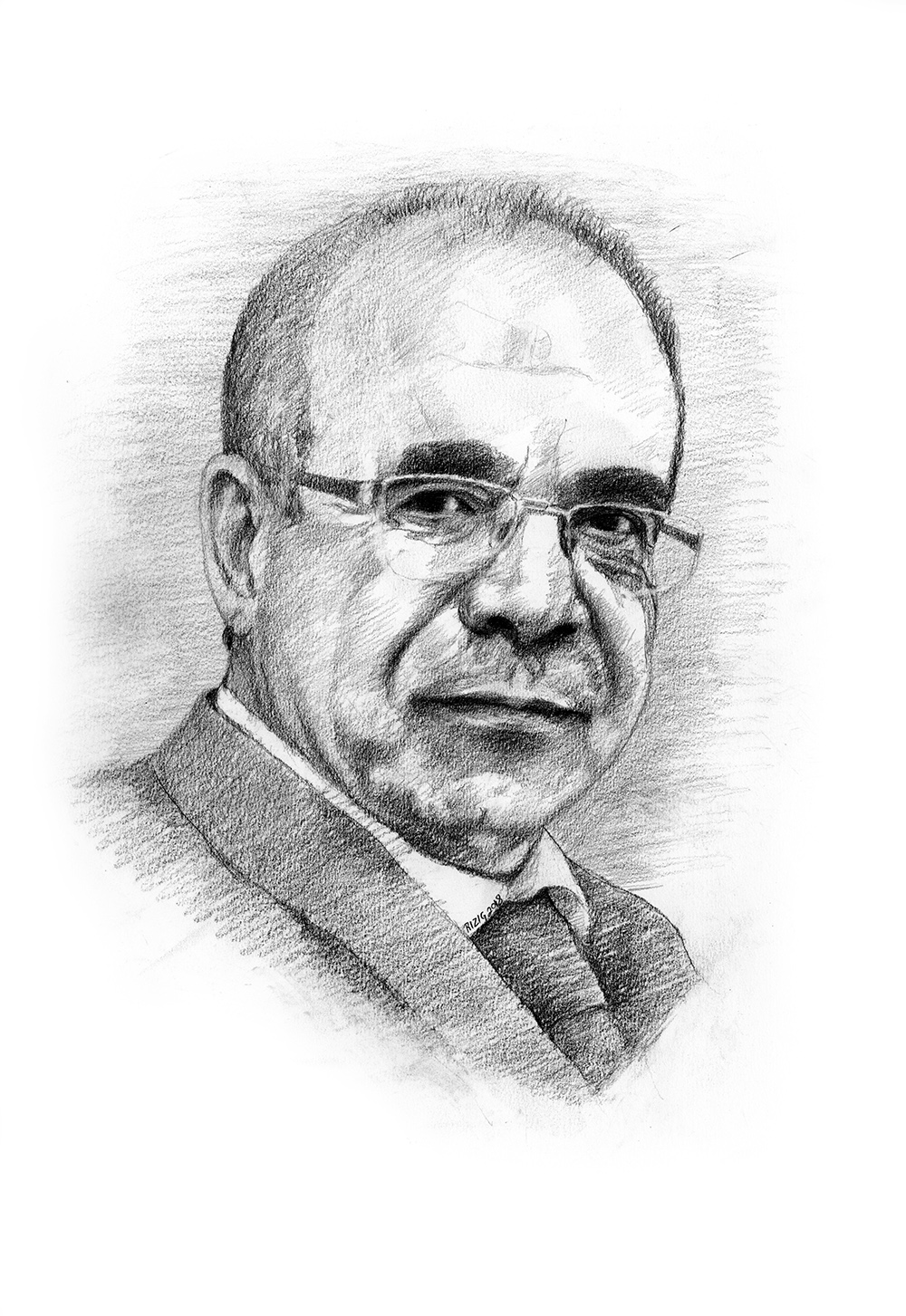King Faisal Prize for Arabic Language and Literature for this year 2025, Topic: (Studies of Identity in Arabic Literature), is withheld due to nominated works not elevating to the criteria of the Prize.
(Withheld)
The King Faisal Prize for Arabic Language and Literature for this year 2024, Topic: (Non-Arab Institutions and their Endeavors to Promote Arabic), has been withheld due to insufficient fulfillment of the Prize requirements.
Professor Abdelfattah Kilito
Professor Abdelfattah Kilito studied at Mohammed V University, Rabat, at the Faculty of Arts, specializing in French literature. He pursued his studies until he obtained a postgraduate diploma in 1971 on a theme about the novelist François Mauriac.
He started teaching at the Faculty of Literature in 1968 and continued to teach modern literary theories at the same Faculty until retirement in 2010. In addition to his interest in French literature, he never ceased to attach interest to Arabic literature. In 1967, on the occasion of preparing a certificate in comparative literature, he discovered ancient Arabic literature and closely studied the works of critics, including Ibn Qutaybah, Qudamah bin Ja’afar, Al-Amadi, Al-Qadi Al-Jurjani, and Abdul-Qaher Al-Jurjani.
At the close of the sixties, the movement of structural analysis of the narrative emerged, so Professor Kilito took an interest in it and read the writings of Roland Barthes, Gérard Genette, Tzvetan Todorov, and Algirdas Greimas. He then decided to devote his doctorate to ancient Arab narrative, so he registered at the new Sorbonne University a subject on the maqamats (Arabic prosimetric literary genre), focusing on the relationship of narrative with cultural systems. The thesis was published in 1983 and had widespread resonance among French Arabists, as some of them translated the texts he studied, including “Maqamat al-Hamdhani”, “Maqamat al-Hariri”, “The Tale of Abu al-Qasim” by al-Mutahhar al-Azdi, and “Doctors’ Call” by Ibn Batlan. In the meantime, interest in “One Thousand and One Nights” grew stronger. The book was re-translated into French and tentative analytical writings were published, especially the analysis penned by André Mikkel, Jamal Eddine Bencheikh, and Claude Bremont. In this environment, Abdel Fattah Kilito wrote “The Eye and the Needle, a Study on One Thousand and One Nights” (1992). He was also concerned with the perceptions of Arab historians and news transmitters about the original language and the first poem. He wrote “The Tongue of Adam” (1995) on this topic, in addition to other studies in ancient biographies and in the literature of virtues.
With regard to Professor Kilito’s approach to these texts, he was keen on deepening his knowledge of various modern theories, while being very cautious not to be fascinated by them. In his view, this can only be achieved through a comprehensive assimilation of ancient theories, as well as familiarity with aspects of modern world literature, in order to avoid narrow-minded specialization.
Professor Kilito has been a visiting professor and lecturer at the New Sorbonne, Harvard University, Princeton University, the University of Chicago, the University of Oxford, and the College de France. In parallel, his writings have been translated into nearly ten languages, and he won a number of awards for his literary and critical output.
This biography was written in the year the prize was awarded.
Professor Suzanne Stetkevych
Suzanne Stetkevych holds a Ph.D. in Classical Arabic Literature, and she is the chair of the Department of Arabic and Islamic Studies at Georgetown University. Professor Stetkevych held several managerial positions including the Department of Near Eastern Languages and Cultures chair at Indiana University; the Director of Middle Eastern Studies Program at Indiana University; the Department of Arabic and Islamic Studies chair at Georgetown University.
She has been a member of several committees, the Fulbright Selection Committee, the Patten Lecture Committee at Indiana University; the Dept. of Arabic & Islamic Studies, the Arabic Linguist Search Committee; and a member of the Editorial Board in the Journal of Arabic Literature.
Professor Stetkevych has published numerous research papers specialized in Arabic Literature Studies in English in refereed journals and periodicals. Her scholarly and literary works include: Fallen Cities as Fallen Women: Abu Tammam’s Ammariyah Qasidah and Ibn Al-Rumi’s Ritha Ahl Al-Basrah, Toward a Redefinition of Badi Poetry, The Muwazanah of Al-Amidi: A Critique, Archetype, Attribution in Early Arabic Poetry: Al-Shanfara’s Lamiyyat Al-Arab, and Pre-Islamic Panegyric, and the Poetics of Redemption: Mufaddaliyyah 119 of Al-Qamah and Banat Su’ad of Ka‛b Ibn Zuhayr, Ritual Patterns in the Classical Arabic Qasidah, Enter the Qasida: Critical Approaches to the Arabic Ode: Abu Firas Al-Hamdani’s Rumiyah to Sayf Al-Dawlah.
Her Publications comprise Abu Tammam and the Poetics of the Abbasid Age, The Mute Immortals Speak: Pre-Islamic Poetry and the Poetics of Ritual, Adab Al-Siyasah Wa Siyasat Al-Adab: Al-Tafsir Al-Tuqusi Li Qasidat Al-Madh Fi Al-Shear Al-Arabi Al-Qadim, The Poetics of Islamic Legitimacy: Myth, Gender and Ceremony in the Classical Arabic Ode, The Mantle Odes: Arabic Praise Poems to the Prophet Muhammad, The Cooing of the Dove and the Cawing of the Crow: Late Abbasid Poetics in Abu Al-Ala Al-Ma’arri’s Saqt Al-Zand, and Luzum Ma La Yalzam.
She also edited and reviewed several collective books and Journals in the field of Arabic Literature Studies in English, which include: Reorientations/Arabic and Persian Poetry, Early Arabic Poetry and Poetics, Beyond the Line: Classical Arabic Literary Critics on the Coherence and Unity of the Poem, The Modern Arabic Novel: An Historical and Critical Introduction, Journal of Arabic Literature, and Studies in Arabic Literature/Brill Studies in ME Literatures.
Professor Stetkevych was honored for her efforts in the field of Arabic Literature Studies in English with several awards, including: Solomon Katz Visiting Distinguished Professorship in the Humanities in 1999; Sultan Qaboos bin Said Chair in Arabic and Islamic Studies at Georgetown University in 2014; the Middle East Medievalists Lifetime Achievement Award in 2017; Sheikh Zayed Book Awards: Cultural Personality of the Year in 2019, Abu Dhabi, UAE.
This biography was written in the year the prize was awarded.
Professor Muhsin Al-Musawi
Muhsin Al-Musawi holds a Ph.D. in Arabic and Comparative Literary Studies from Columbia University, New York. Professor Musawi held several Academic and managerial positions including being Selected for Senior Professorship of Arabic at the American University in Cairo; Professor of Arabic Studies at American University of Sharjah (AUS); Affiliate Professor at Temple University; Professor of Arts at the University of Tunis, Manouba; Professor and Chair of Department, in Sana’a University, Yemen; Chairman of the Board, Cultural Affairs Foundation, Baghdad; Professor at Amman University, Jordan; Professor and Chair of Media Department at Baghdad University, Iraq; he is currently a Professor of Arabic literature at Columbia University, USA.
He has been a member of several Advisory Councils and Boards including: a member of the Board at the Arabic Language Center, Abu Dhabi; a chairman at the IRAF, (International Prize for Arabic Fiction); an evaluator at Freiburg Institute for Advanced Study (FRIAS) and University of Strasbourg Institute for Advanced Study (USIAS); an adviser to the British Royal Academy, the Middle Eastern Studies Association (MESA), the American Comparative Literature Association (ACLA); and the Modern Language Association; an honorary member at the Latin American Association for Writers; a chair at the Iraqi Critics’ Association; and a member of the Oriental Institute in Chicago.
Professor Musawi has published numerous research papers specialized in Arabic Literature Studies in English in refereed journals and periodicals. His scholarly and literary works include: Al-Thakirah Al-Shabiyyah Limujtama’at Alf Laylah Wa Laylah; Al-Kamil Fi Al-Lughah Al-Arabiyyah Wa Adabiha; Al-Nazariyah Wa Al-Naqd Al-Thaqafi; Al-Nukhbah Al-Fikriyyah Wa Al-Inshiqaq; Al‑Istishraq Fi Al‑Fikr Al‑Arabi; Ru’yat Al‑Rajul Al‑saghir Fi Al‑Qissah Al‑Qasirah; As’lat Al-Thaqafah; Nazariyyat Al-Riwayah; Naz‘at AI‑Hadathah Fi Al-Qissah Al‑Iraqiyyah; Al-Mawqif Al-Thawri Fi Al-Riwayyah Al-Arabiyyah.
His Publications comprise Autobiographical Disclosures: The Postcolonial Arabic Atlas; The Arabian Nights in World Literature; Arabic Poetry: Trajectories of Modernity and Tradition; Arabic Literary Thresholds; The Arabian Nights: Introduction and Notes; Arabic Poetry Trajectories of Modernity and Tradition; The Postcolonial Arabic Novel: Debating Ambivalence; Al-Turath Al-Thaqafi Al-Arabi; Mujtama Alf Laylah Wa Laylah; Infirat Al-Iqd Al-Muqaddas; Sardiyyat Al‑Asr Al‑Islama Al‑Wasit; Al-Wuqu Fi Da’rat Al-Sihr: Alf Layla Wa Layla Fi Al-Adab Al-Injlizi; Naz‘at AI‑Hadathah Fi Al-Qissah Al‑Iraqiyyah; Al-Madamin Al-Bourjiwaziyyah Fi Al-Shia‘r.
He also edited and reviewed several collective books and journals in the field of Arabic Literature Studies in English, which include Editor of Journal of Arabic Literature in Leiden; Member of the Editorial Board; Editorial Board of The Cambridge Journal of Postcolonial Literary Inquiry; Present Editorial Board of Transforming Literary Studies: Crossing Boundaries; Modern Language Association of North America (MLA) Texts and Translations Editorial Committee; Editor of Orientalism Quarterly, Baghdad; Editor of Arab Horizons Monthly (in Arabic).
Professor Musawi was honored for his efforts in the field of Arabic Literature Studies in English with several awards, including: Sultan AL-Owais Culture Award in Literary Studies and Criticism in 2000, Kuwait Prize in Arabic Language and Literary Studies (KFAS) in 2018, and Tunis International Book Fair Prize in 2018.
This biography was written in the year the prize was awarded.
Professor Mohamed Mechbal
Mohamed Mechbal holds a Doctorate in Arabic literature, and he is a professor of rhetoric and literary criticism at the Faculty of Arts, Abdul-Malik al-Saadi University, Tetouan, Morocco.
Professor Mechbal held several managerial positions, including Head of the Research Training Unit on “Rhetoric of Ancient Arabic Prose Texts” and Head of “Doctoral Research Structure: Rhetoric and the Horizons of Discourse Analysis”. He has been a member of several committees, notably the scholarly committee of the journal Rhetoric and Discourse Analysis in Morocco, a member of the jury for the 2018 Morocco Book Prize, and a member of the jury for the 2016 International Prize for Arabic Fiction – Booker.
Professor Mechbal has published numerous research papers and studies specialized in rhetoric and criticism in refereed journals and periodicals. His scholarly and literary works include On the Rhetoric of Argumentation: An argumentative Rhetorical Approach to Discourse Analysis, Ethics and Identity Discourse: An argumentative Rhetorical Approach to Al-Jahedh’s Letters, On Modern Arab Rhetoric, Towards an Extended Rhetoric, The Novel & Rhetoric: Towards an Expanded Rhetorical Approach to the Arabic Novel, and Rhetoric and Literature: From Language Images to Discourse Images.
His research papers comprise The Aesthetic Effect on the Rhetorical Theory of Abd Al-Qaher Al-Jurjani, The Characteristic of Sarcastic Irony in the Letter of Quadrature and Circulation: A Systematic Proposal, Rhetoric and Literary Gender, Arabic Rhetoric and the Field of Characteristics, Rhetoric of the Narrative Text: A Critical Review, and The Status of Ethos in the New Rhetoric.
Professor Mechbal has participated in many conferences and seminars inside and outside Morocco. He has presented many research studies, including Rhetoric of the Literary Text: Origins and Extensions, which was published in 2008 by the Faculty of Arts, Cairo University, as part of a book issued by the National Conference of the Department of Arabic Language and Literature Curricula for the Study of Arabic Literature in a Hundred Years.
He also supervised several collective books in the field of rhetoric which include: The Rhetoric of Religious Discourse, The Rhetoric of Political Discourse, and The Rhetoric of Historical Discourse.
Professor Mechbal was honored for his efforts in the field of criticism with several awards, including the 2018 Sheikh Zayed Prize for Critical Studies, and the Katara Prize for Critical Studies in 2018.
This biography was written in the year the prize was awarded.
Professor Michael G. Carter
Michael Carter obtained his B.A. in German and French in 1962, and another B.A. in Arabic and Persian in 1964, and later in 1966 his M.A. He did his Ph.D. in A Study of Sībawayhi’s Principles of Grammatical Analysis in 1968.
In 1968, he became a Lecturer in the Department of Semitic Studies at the University of Sydney, Australia. In 1985, he became a visiting Professor at the Center of International Studies in Duke University, then in 1986, he became a visiting Associate Professor at the Dept. of Near Eastern Languages and Literatures in New York University, and later in 1988, Associate Professor (tenured) in the Dept. of Near Eastern Languages and Literatures in New York University. From 1996 to 1998, Professor Carter was a Førsteamanuensis (Assoc. Prof. tenured) in the Dept. of East European and Oriental Studies in Oslo University, then in 1998, he became a Professor of Arabic in the Dept. of East European and Oriental Studies in Oslo University, until he retired in 2006. Since 2006, he has been an Honorary Professor, later Affiliate in the Center for Medieval Studies in Sydney University, finally retiring in 2018.
This biography was written in the year the prize was awarded.
Professor Abdelali Mohamed Oudrhiri
Abdelali Oudrhiri completed his postgraduate studies at the University of Mohammed Ben Abdallah in Fez, the Sorbonne University in Paris, and the University of Mohammed V in Rabat. He received his master’s degree in linguistics in 1976, and then a doctorate in linguistics in 1986. He is a member of the Board of Trustees of the Islamic University of Niger, Secretary General of Moroccan Linguistic Union, and a founding member of the Union. He is also a member of several scientific societies and journals in Morocco and the Arab world.
Professor Oudrhiri published research and specialized language studies in Morocco and the Arab world. He also published dozens of literary, cultural, social and poetic texts in a number of newspapers, and cultural magazines. He is also the author of many literary and linguistic books. Moreover, he has several collections of poetry.
Professor Oudrhiri participated in dozens of scientific seminars and conferences inside and outside Morocco; in honor of his scientific efforts, he was awarded the Moroccan Book Award three times: (1977 – 1989 – 2014).
This biography was written in the year the prize was awarded.
Professor Mahmoud Fahmy Hegazi
Fahmy Hegazi completed his bachelor’s degree at Cairo University in the Arabic Language Department in 1958, and his master’s degree in 1959. At the same time, he pursued all the courses of the German Language Department at the Al-Alsun School in the Ministry of Higher Education, where he mastered Dutch. He was the first Egyptian to teach Dutch in the general education schools in Egypt. He was then appointed as a lecturer in the Department of Arabic Language and Literature. Afterwards, he was sent to Germany to complete his doctoral studies in linguistics at the University of Munich.
He held several academic and administrative positions, including: President of the Egyptian University, Almaty, Kazakhstan, Chairman of the National Library and Archives, Professor of Linguistics and Head of Arabic Language and Literature at the Faculty of Arts and Director of Arabic Language Center at Cairo University, University of Budapest (Hungary), Amsterdam (Netherlands), and Lyon (France), and Visiting Professor of Postgraduate Studies at several Arab universities. Professor Hejazi was a Language Sciences instructor at the College of Arts, Cairo University, a member of the Arabic Language Academy in Cairo, the Editor-in-Chief of the Journal of Language Sciences in Cairo, and the Editor-in-Chief of the ZAL Journal in Erlangen, Germany. Professor Hegazi is the author of many books and research in Arabic Linguistic and Literature.
In recognition of his scientific efforts, he was awarded a number of decorations and awards, including the Federal Order of Merit of the First Class of Germany in 1997, the 1998 Cairo University Prize in Humanities, the State Prize for Literature in Egypt in 2000, and the 2013 Medal of the President of the Republic of Kazakhstan.
This biography was written in the year the prize was awarded.
Professor Chokri Mabkhout
Chokri Mabkhout earned the Certificate for the Completion of Studies from the Department of Arabic Language and Literature at the Teachers’ Institute in Soussa in 1986. A year later, he obtained the Certificate of Research Aptitude from the Arts College in Manouba. He earned the Certificate of Aggregation in Arabic Language and Literature from the same college in 1988. In 2001, he received his Ph.D. in Arabic Language and Literature from the College of Arts, Manouba University.
Professor Mabkhout has been teaching language, literature, linguistics, and discourse analysis, at Manouba University since 1988. He assumed the deanship of the Faculty of Arts, and Humanities at Manouba University, and then assumed the chancellorship of this university where he is currently a professor.
He founded, supervised, and edited the magazine Academia, which was published by Manouba University. He also edited and supervised the quarterly cultural magazine The New Thought (Al-Fikr Al-Jadid). He is the Director of the refereed Jjournal Annals of the Tunisian University that is issued by Manouba University. Besides, he is a member of a number of scholarly committees and rights organizations.
Professor Mabkhout has published a number of scholarly works, including Sirat Al-Ghaeb, Sirat Al-A’ati: Al-Sirah Al-Thatiyah Fi Kitab Al-Ayyam of Tâhâ Hussayn, Aesthetics: The Text and its Readers in Classical Arabic Poetics, The construction of Negation, Rhetorical Induction, The Circle of Linguistic Works, The Progeny of the Thief of Fire: The Intellectual Biography, and The Leader and his Shadows: Biography in Tunisia. He then published a collection of stories, Madame President and a second novel titled Baganda.
He received a number of awards, including the Tunisian Ministry of Culture’s award in 1994 for his book The Aesthetics of Intimacy, King Abdullah Bin Abdulaziz International Award for Translation (Honorary Award) in 2012 for his book The Encyclopedic Dictionary of Pragmatics, and the International Prize for Arabic Fiction (IPAF) in 2015 for his novel Etalyenni (The Italian).
This biography was written in the year the prize was awarded.

